While hundreds of thousands of Americans were assembling at the April 29 People’s Climate March in Washington, D.C., and at more than 370 “sister marches” around the country and globally, Donald Trump was 100 miles away in Harrisburg, Pennsylvania, at an election-style rally attended by about 7,000 supporters. After bashing the previous administration on a series of international efforts and saying that he was going to “make a big decision in the next two weeks” on climate change, Trump made two harsh claims about the Paris Agreement: one related to climate financing and the other focused on supposed economic damage to the U.S. from remaining a party to the Paris Agreement.
Trump also indicated he was going to make a “big decision” about the agreement in the next two weeks.
In terms of climate financing, Trump seemed to allude indirectly to funding for the Green Climate Fund, which was rolled out in 2009 and 2010 as part of a push to agree on a global climate pact. The Obama administration supported the GCF through a $3 billion pledge in 2014. The fund aims to help developing countries lower emissions and deal with the worst impacts of climate change.
The relevant passage from Trump’s speech in Harrisburg was as follows:
“The United States pays billions of dollars while China, Russia, and India have contributed and will contribute nothing.”
This statement is misguided and misleading. India and China are industrializing countries. China’s emissions have leveled off over the past three years, 13 years ahead of the deadline they agreed as part of their Paris pledge and with per capita emissions one-third that of the U.S. India’s are still rising, but from a per capita level of emissions one-tenth of the U.S. and with per capita incomes only 3 percent of the U.S. Both countries have invested massively in expanding renewable energy with generation capacity that now surpasses the U.S. by a large margin. Meanwhile, the U.S. remains by far the country most responsible for today’s carbon pollution. This is why the developed countries in the 1992 United Nations Framework Convention on Climate Change—signed by George W. Bush and most world leaders—always saw the need for the developed nations to act first. The U.S. pledge has always been to start cutting emissions first, to prevent dangerous climate change. We agreed to this because developed nations are more responsibility for the problem, and because we can afford to.
This is how a “fair deal” was understood at that time, and the basic principle still applies. All wealthy nations promised to help developing countries cope with the increasing climate impacts from sea level rise, more intense storms, heat waves, and droughts—the products of a problem they didn’t cause, while other countries burned the fossil fuels and reaped the economic benefits. The funding pledges also serve the economic interests of wealthy nations like the U.S.—it’s far cheaper for developing countries to avoid massive increases in emissions of greenhouse gases from fossil fuels, rather than reducing them after the fact.
America’s 2014 pledge was entirely voluntary, and whether we adhere to it will not impact on our status as party to the Paris Agreement. And while $3 billion sounds like a lot, it needs to be understood in context. The funding was to be delivered over four years, and it ranked only 11th in the world in terms of per capita contributions by other countries. Some nations in Europe have pledged six times as much as we have in per capita terms.
For its part, China has set up a major South-South Climate Cooperation Fund to provide $3.1 billion dollars to help developing countries tackle climate change. Russia has pledged $10 million to the United Nations Development Program to help Central European countries with climate change, making their total pledges to that U.N. agency since 2010 over $40 million. So Trump’s claims were false as well as profoundly shortsighted.
In this second claim, Trump said that “The agreement could ultimately shrink America’s GDP by $2.5 trillion over a 10-year period… not with me, folks.”
Trump’s claim appears to draw from a Heritage Foundation report, which looks narrowly at the costs of climate action, without factoring in the enormous cost of doing nothing. This oversight is crucial: If we don’t act on climate change quickly, rising seas will cost hundreds of billions to hold back from damaging coastal cities. Fires, droughts, and more intense hurricanes will continue to drive up disaster relief costs. The 2006 Stern Review back pioneered the economics of trying to understand those costs, and they are huge. Sir Nicholas Stern and his co-authors found that not acting to prevent climate change was far more expensive than acting on climate change, and the point has been confirmed repeatedly since then.
The Heritage report assumes the Paris Agreement will have negligible or no environmental benefits. The authors say, “There is compelling evidence that policies like those resulting from the Paris Agreement will have little impact on global temperatures.” This is contradicted by all the major research centers studying this. For example, Climate Action Tracker estimated that the pledges made in the Paris round could reduce warming from the expected 3.6 degrees Celsius to 2.7 degrees. That is expected to lead to a major reduction in the expected level of climate disasters.
The Heritage report wrongly argues that the U.S. impact on warming would only add up to 0.2 degrees if the country immediately suspended fossil fuel use. In reality, if the U.S. does nothing, or even weakens its commitment to the Paris Agreement, we risk starting a global reversal or even a stampede in the wrong direction. Without the world’s largest historical polluter—who is still responsible for about 25 percent of warming to date, with only 4 percent of the world’s population—many other countries may choose not to act now. For this reason, it seems illogical to calculate just one nation’s actions as if in a vacuum, since success on the climate front requires collective action and, if one big player pulls out, the house of cards could collapse.
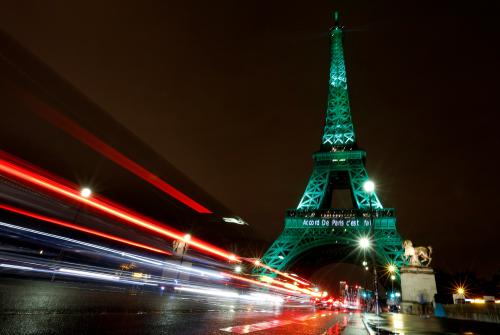

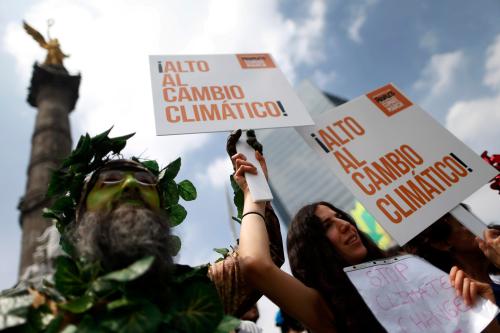
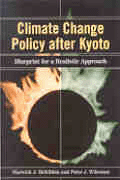
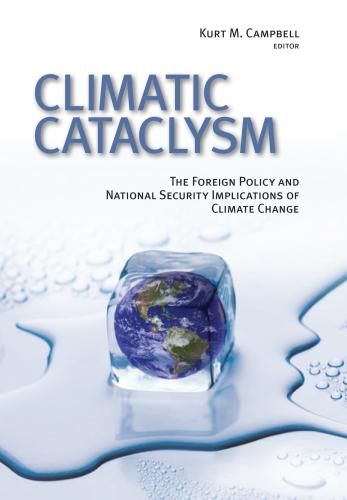


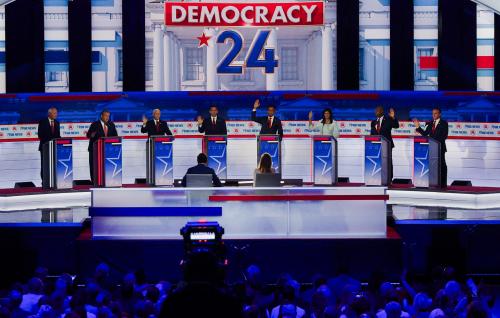
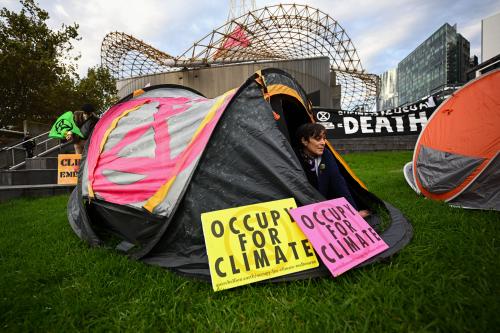
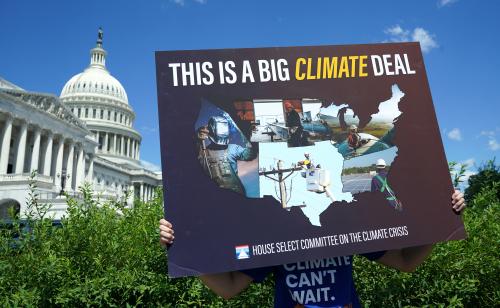
Commentary
From Harrisburg come two profound misconceptions about the Paris Agreement
May 4, 2017